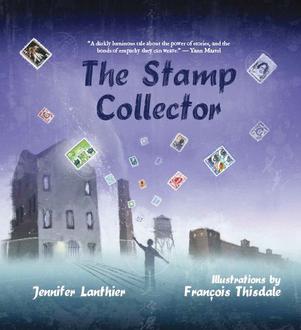
Ontario College of Art & Design University, commonly known as OCAD University or OCAD, is a public art university located in Toronto, Ontario, Canada. The university's main campus is spread throughout several buildings and facilities within downtown Toronto. The university is a co-educational institution which operates three academic faculties, the Faculty of Art, the Faculty of Arts and Science, and the Faculty of Design. The university also provides continuing education services through its School of Continuing Studies.

Ronald James Deibert is a Canadian professor of political science, philosopher, founder and director of the Citizen Lab at the Munk School of Global Affairs, University of Toronto.
The Governor General's Award for English-language children's writing is a Canadian literary award that annually recognizes one Canadian writer for a children's book written in English. It is one of four children's book awards among the Governor General's Awards for Literary Merit, one each for writers and illustrators of English- and French-language books. The Governor General's Awards program is administered by the Canada Council.
The Governor General's Award for English-language children's illustration is a Canadian literary award that annually recognizes one Canadian illustrator for a children's book written in English. It is one of four children's book awards among the Governor General's Awards for Literary Merit, one each for writers and illustrators of English- and French-language books. The Governor General's Awards program is administered by the Canada Council.
Christel Haeck is a former politician in Ontario, Canada. She was a New Democratic Party member of the Legislative Assembly of Ontario from 1990 to 1995 who represented the riding of St. Catharines—Brock.
The Special Libraries Association (SLA) is an international professional association for library and information professionals working in business, government, law, finance, non-profit, and academic organizations and institutions.
The Ontario Library Association (OLA) was established in 1900 and is the oldest continually operating library association in Canada. With 5,000 members, OLA is also the largest library association in Canada and among the 10 largest library associations in North America.
Christie Lucy Harris, was a Canadian children's writer. She is best known for her portrayal of Haida First Nations culture in the 1966 novel Raven's Cry.

The Hamilton Public Library (HPL) is the public library system of Hamilton, Ontario, Canada.
The Amelia Frances Howard-Gibbon Illustrator's Award was presented annually by the Canadian Library Association/Association canadienne des bibliothèques (CLA) to an outstanding illustrator of a new Canadian children's book. The book must be "suitable for children up to and including age 12" and its writing "must be worthy of the book's illustrations." The illustrator must be a citizen or permanent resident. The prize is a plaque and $1000 presented at the CLA annual conference. The medal commemorates and the award is dedicated to schoolteacher and artist Amelia Frances Howard-Gibbon who taught academics as well as art to Ontario schoolchildren in the 1860s and early 1870s. Her best-known work An Illustrated Comic Alphabet was published in 1966 by Henry Z. Walck in New York City and Oxford University Press in Toronto.

Annick Press is a Canadian book publishing company that was founded in Toronto, Ontario in 1975 by Anne Millyard and Rick Wilks. Rick Wilks became the sole owner in 2000. A second editorial office was opened in Vancouver by Colleen MacMillan in 1999. Annick Press publishes approximately thirty books of fiction and non-fiction for children and young adults per year.
Kady MacDonald Denton is a Canadian creator of children's books, primarily an illustrator of picture books. She observed in 2011 that "I'm in that quickly-shrinking group of illustrators who doesn’t use a computer at any stage in the illustration process."

The Stamp Collector is a children's picture book by Jennifer Lanthier and François Thisdale. It was published in 2012 by Fitzhenry & Whiteside. A French language edition, Le Collectionneur de Timbres, was released in October, 2013. The theme of the book is freedom of expression.

The Tiny Kite of Eddie Wing is a children's picture book written by Maxine Trottier and illustrated by Al Van Mil, published in 1995 by Stoddart Publishing of Toronto. It tells the story of a boy's love for flying kites and an old man's love for poetry. The book has been reissued.

Jennifer Deirdre Jane Lanthier is a Canadian children's author and journalist. Since August 2016 she has been the Director, U. of T. News at the University of Toronto.
Peter Goodhand is a senior executive and board member in the health research advancement community.
The Canadian Library Association Young Adult Book Award was a literary award given annually from 1981 to 2016 to recognize a Canadian book of young adult fiction written in English and published in Canada, written by a citizen or permanent resident of Canada.
This is a timeline of women in library science throughout the world.

The Connecticut Library Association (CLA) is a professional organization for Connecticut's librarians and library workers. It is headquartered in Belchertown, Massachusetts. It was founded on February 23, 1891, in New Haven, Connecticut, with the purpose of promoting "library interests by discussion and interchange of ideas and methods, and not to 'trench upon the province of the American Library Association.'" The first regular CLA meeting was held in the Wadsworth Atheneum in May 1891. CLA's initial membership was thirty people and dues were fifty cents. The first CLA president of the Association was Addison Van Name who served from the organization's founding in 1891 to 1892. CLA urged the state of Connecticut to provide incentives for towns to make their libraries public. The state responded by offering grants of up to $200 yearly for libraries to spend on books.

The Canadian Federation of Library Associations / Fédération canadienne des associations de bibliothèques (CFLA-FCAB) is a non-profit federation of Canada’s library associations. It was incorporated on 16 May 2016 and replaced the Canadian Library Association (CLA).









